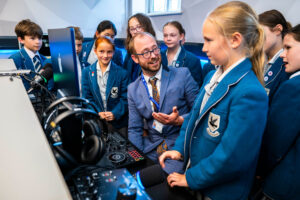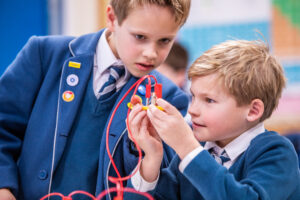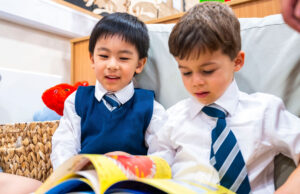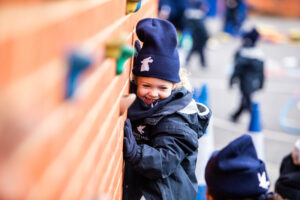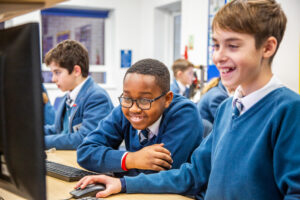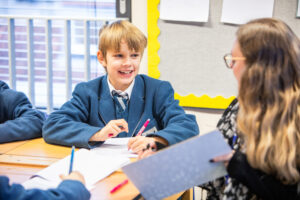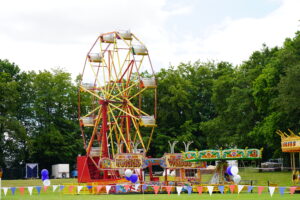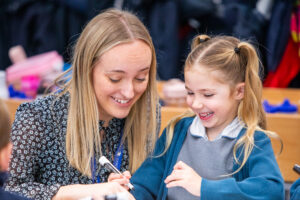On Friday, our School Council were delighted to join an online interactive workshop with 2 representatives from UK Parliament Education. They gathered in the library to enhance their understanding of the Palace of Westminster, the House of Commons and the House of Lords.
The School Council were thrilled to explore the corridors of Parliament, without even leaving the library! The interactive tour took the children through the chambers of the building, focusing on the specific architectural details and the elaborate gold features. The children were shown the Queen’s Staircase, the Robing Room and the Royal Gallery; they were drawn to the grand paintings that lined the walls. Specifically, those in the Royal Gallery which include, Daniel Maclise’s monumental wall painting, The Meeting of Wellington and Blucher after the Battle of Waterloo, an intricate painting completed in 1861. The tour guides quizzed the children on their general knowledge, who demonstrated an in-depth understanding of the government and the structure of our UK parliament. The question-and-answer session resulted in interesting group discussions on important topics such as the UK voting age where the children showcased powerful discussion skills. The children were intrigued when they discovered The Life Peerages Act 1958, which allowed more people from different professions and women to represent the House of Lords and Life Peers. Before the Act, the House of Lords had been made up exclusively of hereditary Peers. This topic sparked interest and triggered a lengthy discussion on who could represent them in parliament as a life peer.
The outreach team at UK Parliament Education, bring UK Parliament directly to schools. They deliver engaging assemblies and workshops to school children all over the UK. Each assembly equips the children with a broad understanding of how our Parliament works, the roles and responsibilities of MPs and members of the Houses, as well as how the children can get their voice heard.
We encourage our children to consider the wider community and strive to make an impact whether it be through work in the Eco-Committee, School Council or charities. The School Council consists of representatives from each year group, who have been selected to give their peers a voice. Their understanding of how the UK parliament works is a valuable tool and will impact how they structure their meetings and discussions.
Rob Andrews said:
‘Our School Council gives the children the opportunity to make a difference in the school community, empowering them to make a change and promote global citizenship. Our school motto is Strong and Sagacious, the children leave our school as confident individuals, wiser and more knowledgeable ready for the world ahead of them.’
